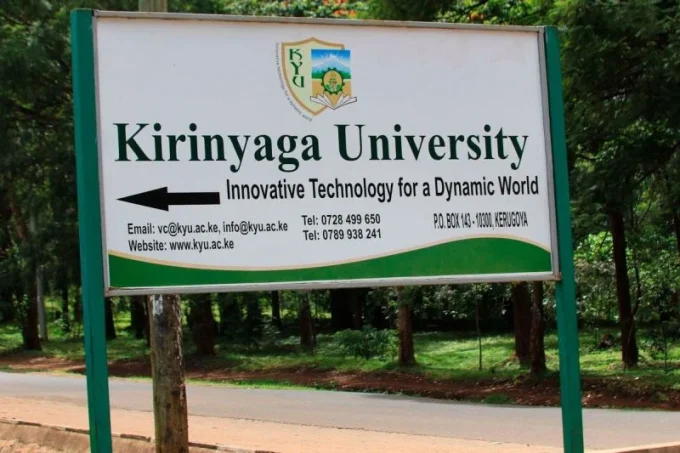About 50,000 graduates are churned out of public and private universities in Kenya every year, piling onto the number of unemployed youth in the country estimated at 2.3 million, according to the ministry of Education. Kenya’s unemployment rate, which stands at 40% is a ticking time bomb that needs to be addressed urgently by stakeholders both from the public and private sectors of our economy.
The Principal Secretary for Technical and Vocational Education and Training (TVET), Dr Dinah Mwinzi, in a TVET forum, said youth unemployment can be reduced if most of the ‘hustling’ population had different technical skills. This, she reiterated, will also accelerate achievement of Kenya’s aspirations on labor market needs for a middle-income economy.
It is interesting to note that only one in every 10 youth secures gainful employment yearly. The other nine find their source of livelihood by either engaging in small businesses or by expending their sweat in the jua kali artisan sector. Globally, unemployment causes debilitating poverty levels among families and as a country we need to mitigate its devastating effects by urgently popularizing vocational training among our youth.
Developed economies like Germany and China are anchored on the pillar of vocational skills training and we can see the dividends these countries are reaping from a mindset shift. Vocational education prepares people to work in a trade, a craft, as a technician, or in professional vocations such as engineering, accountancy, nursing, medicine, architecture, or law.
Craft vocations are usually based on manual or practical activities and are traditionally non-academic but related to a specific trade or occupation. Vocational education is sometimes referred to as career education or technical education. In most African nations and more so Kenya, Vocational Skills Training for a long while, has been given a wide berth by youth due to its tedious and unpopular mode of dirtying hands as a means to an end.
As a country we need to change this ill-advised mindset very fast if we are serious about reducing unemployment and pushing our country into the club of developed nations by the year 2030.
Our population is growing exponentially yet there is no match in figures of new opportunities being created in the economy to fill in the increasing jobs gap. Additionally, Kenyan youth lack the will to acquire market relevant vocational skills from our tertiary institutions.
Instead, we are witnessing a mad rush to acquire degrees in Medicine, Law and Business Management courses. These twin factors are compounding the campaign to reduce unemployment in the country and that is why there is a serious skills gap in the Kenyan economy.
Not enough jobs
Parents, guardians and sponsors have every right to place high expectations on students they are offering education financing. However, we all need to appreciate the fact that not all students can find jobs from the three prestigious disciplines of Medicine, Law and Business Management. Our economy is still young and it has its own capacity limits and can only absorb the number of graduates it can manage.
Today, you should not be surprised to see a placard wielding job seeker in our streets who happens to be an Actuarial Science alumnus. We do not have enough jobs in our economy and a mindset shift is urgently needed. Youth need to be re-programmed to become job creators and not job seekers.
The radical shift ought to start at the curriculum development stage, career counselling departments in school, church mentorship forums and the relevant Government ministries as well. Just like Agri-business is being marketed as a cool business option in the media, stakeholders ought to come up with a well-oiled vocational skills training marketing campaign that has a secretariat similar to the one that manages Brand Kenya.
READ ALSO: These are the technical skills that you get you a job faster
Unemployment is a disaster that has devastating effects on families and the society at large. One way of increasing our country’s manufacturing capacities is by popularizing vocational skills training. In return, the Kenyan economy will improve its production capacity that will later on translate to more exports of finished goods abroad.
A fund needs to be set aside that will be utilized in periodical upgrading exercises of our existing technical and vocational institutions. This move will help in increasing the supply of adequate and well educated manpower to our manufacturing sector. The stability that vocational skills training brings to the economy will help pull out as many youth as possible from the debilitating effects of unemployment.
Vocational training centres
It is commendable to note that various manufacturing units in the country are now partnering with vocational training centers in a bid to up-skill their employees who later on stand a better chance of securing permanent employment contracts. Examples are ample also of development partners who are joining hands with local corporate entities to offer vocational skills training to youth through their CSR departments like for example the Housing Finance Foundation Iinitiative. All these are proactive measures aimed at reversing the worrying unemployment estimates in the country.
The Vocational Skills Training Movement began in 24th June 2013 and since then we have constantly been urged to positively embrace it by leaders both from the national and county level. Worryingly, demand for skills upgrade among the youth is gaining tract in a rather subdued way. Funding for TVET has been set aside. About Kshs 2.5 billion in the current financial year, we agree but enrollment levels at our vocational training institutions still remain low.
ALSO SEE: Survival tips for fresh graduates
Guardians and instructors need to be advised that up-skilling is the only viable valve youth can use to escape the unforgiving shackles of unemployment. We should therefore not sit back and watch as our youth continue making wrong career moves. Continued resistance to vocational skills training is a worrying trend and needs to be checked so that we may achieve our country’s sustainable development goals much faster.
Solutions to this worrying trend are many and here is a summary of the most urgent ones. One, stakeholders in the manufacturing sector should now be involved in curriculum development as a way of coming up with market relevant course outlines. Two, the ministry of vocational training with the help of other relevant ministries should sell the benefits of vocational skills training in the main stream media with alumni of technical institutions as vocational training brand ambassadors. This will help invite more youth to acquire vocational skills training since they will have seen and heard successful self-employment stories from vocational training graduates currently in the job market.
Good pay
Three, instructors at all vocational training centers must be aware of the enormous responsibility on their shoulders of transforming Kenya into a developed economy through vocational skills training. Relevant stakeholders should ensure that instructors are positively motivated to teach, are adequately remunerated and should come up with policies that will ensure loyalty to vocational skills training.
We should all agree in unison that vocational skills training is the best remedy so far to youth unemployment and if Germany and China succeeded in implementing it, I do not see why Kenya cannot.













Leave a comment